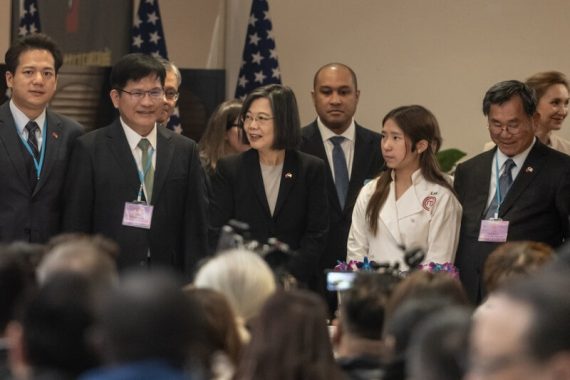R
ecent polling data suggests that U.S. public support for military intervention in defense of Taiwan has seen a decline from its peak in 2021, as global focus shifts to the conflicts in Ukraine and the Middle East.
According to Russell Hsiao of the Global Taiwan Institute, despite President Joseph Biden’s repeated affirmations of support for Taiwan, American public opinion seems to be swaying under the pressure of global military engagements and emerging war fatigue.
The disconnect between the articulated positions of U.S. leaders and the less-visible sentiments of the American public represents a notable challenge in foreign policy discourse. While officials often communicate their stances through formal declarations, the collective opinion of the populace—on issues like the defense of Taiwan—tends to be more nuanced and diffuse, making it harder to gauge and incorporate into policy formulation.
Changing public sentiment amidst global unrest
With President Biden at the helm, the United States has seen a shift in public opinion regarding foreign military support, especially concerning Taiwan. Biden has affirmed defense support for Taiwan on multiple occasions, a stance seemingly at odds with recent trends in American public opinion.
The Chicago Council on Global Affairs has conducted polls that reveal a decline in support for the use of troops to defend Taiwan, from 52% in 2021 to a lower 44% in 2022, and further down to 38% in a 2023 Reuters poll.
The downward trend in support for military intervention over Taiwan may be linked to the U.S. engagement in the Ukraine war, which has sparked intense debate over national military commitments and resource allocation.
The U.S.’s withdrawal from Afghanistan and ongoing conflicts in the Middle East contribute to the complex backdrop against which American public opinion on foreign policy is shaped.
Bipartisan support for Taiwan persists despite trends
Despite these trends, bipartisan support for Taiwan among U.S. policymakers remains robust. The Republican party, traditionally seen as more supportive of Taiwan due to its anti-communist stance and advocacy for democracies, continues to show strong backing for the island nation’s defense.
However, generational differences have emerged within the party, with younger Republicans showing less inclination towards an assertive foreign policy.
The implications of these shifts in public opinion are significant for Taiwan, which relies on U.S. support as a deterrent against potential aggression from the People’s Republic of China (PRC).
The evolving public sentiment underscores the need for Taiwan to maintain and strengthen its international alliances and not rely solely on verbal affirmations of support.
The Global Taiwan Institute’s report concludes that while U.S. public support is an important factor, it is not yet at a tipping point, and Taiwan remains a top concern for Americans.
The future of U.S. involvement in Taiwan’s defense will likely continue to be influenced by global events and domestic opinion, highlighting the need for vigilant and adaptable foreign policy strategies.
Source: Global Taiwan Institute
Recommended





